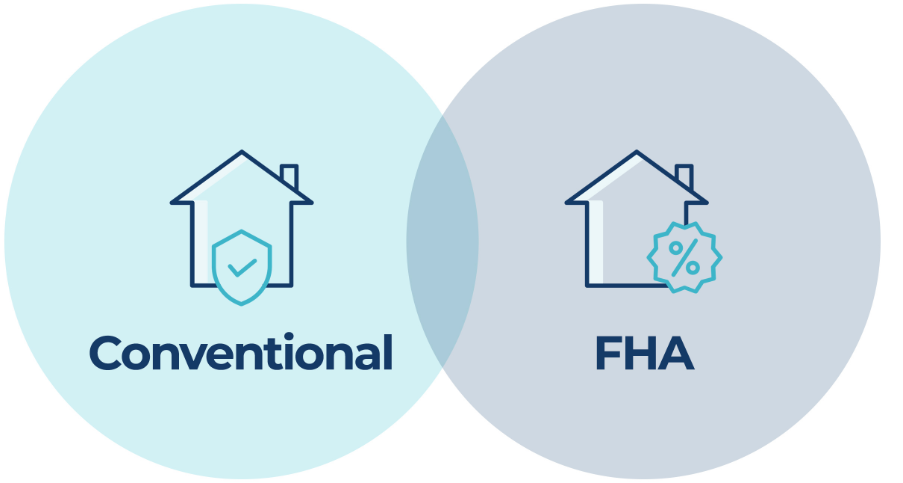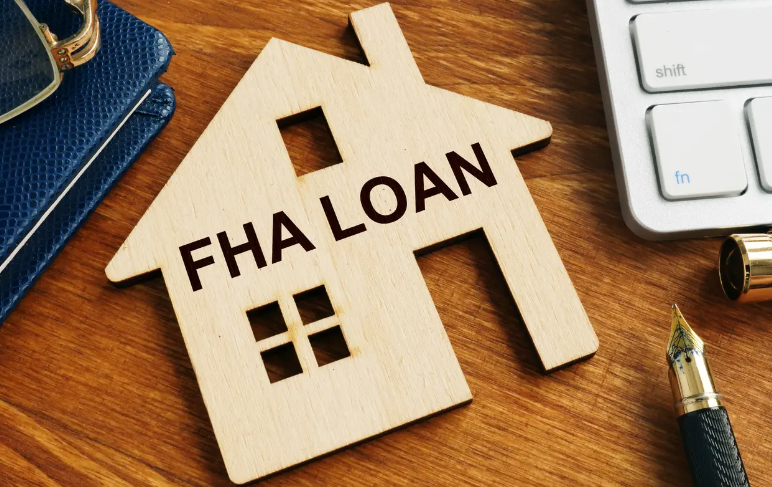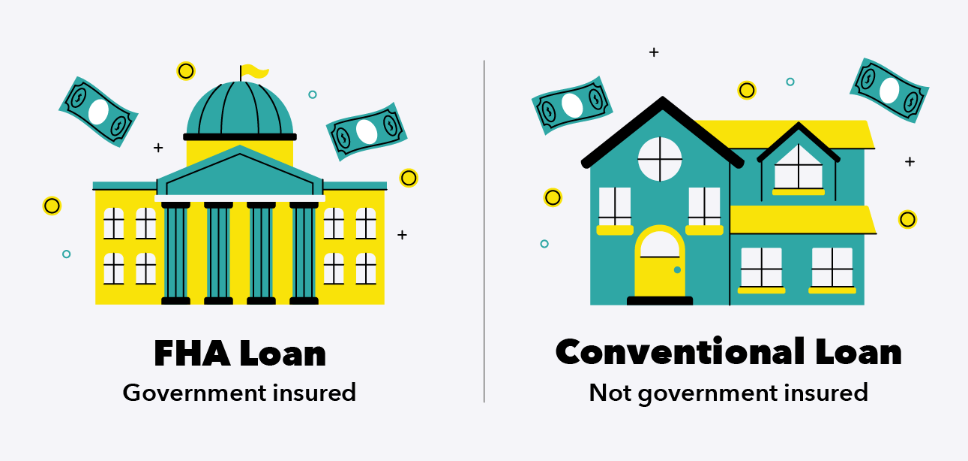If you think all mortgages are the same, you’re almost right. Conventional loans account for about eighty percent of all home loans in the United States. However, that doesn’t mean that the same loan type works for everybody. There are various types of mortgages available, and one popular option is the FHA Loan. In this article, we will delve into the FHA vs Conventional Loans mortgages to help you make an informed decision.
Understanding FHA Loans
When you explore general information about obtaining a home loan or researching interest rates, you often come across details relevant to conventional loans. These loans are so prevalent that lenders often default on offering them unless you specifically request something else. However, conventional loans have strict lending standards for conforming loans, which may not be accessible to everyone. This is where FHA Loans come into play.
FHA Loans are backed by the Federal Housing Administration (FHA) with the aim of making homeownership more accessible. Here are some key features of FHA Loans:
- Credit Score: FHA loans have a lower minimum credit score requirement compared to conventional loans. While the FHA sets a minimum credit score of 500, lenders can establish their own minimums. Typically, it can be challenging to secure an FHA loan with a credit score of 500, but they generally accept lower credit scores than conventional loans.
- Debt-to-Income Ratio (DTI): FHA loans permit a higher debt-to-income ratio, potentially reaching as high as 50 percent, assuming your credit score is at least 580.
- Down Payment: The minimum down payment for an FHA loan varies based on your credit score. If your credit score is between 500 and 579, you’ll need a down payment of at least 10 percent. However, if your score is 580 or higher, your down payment can be as low as 3.5 percent.
- Mortgage Insurance: One significant drawback of FHA loans is the requirement for mortgage insurance. Because the FHA insures these loans, lenders are willing to accept riskier borrowers, but this translates to borrowers paying insurance. FHA mortgage insurance differs from other types in that it lasts for a more extended period. If you make a down payment of 10 percent or more, the insurance lasts for 11 years. With a lower down payment, like the 3.5 percent minimum, the insurance lasts for the life of the loan.
- Property Standards: FHA loans come with specific property standards, requiring an additional FHA appraisal to ensure the property is safe and secure. This separate appraisal step can make some sellers hesitant to accept FHA buyers.
Different Types of FHA Loans
There are several types of FHA loans available:
- 203b (Simple Purchase Loan): This is the most common type of FHA loan, often referred to simply as an FHA loan.
- 203k (Renovation Loan): 203k loans allow you to purchase a home and finance renovations within a single mortgage.
- Title One Loans: These loans can be used to purchase manufactured homes, which are typically ineligible for conventional loans.
- Construction-to-Permanent Loans: Designed for building a house from the ground up.
- Energy Efficient Mortgages: Focused on financing energy efficiency upgrades in the home.
FHA Loans vs Conventional Loans
Now, let’s compare FHA Loans to conventional loans, which are the most common mortgage type. Here are some key differences:
- Credit Score: For conventional loans, a minimum credit score of at least 620 is generally required. A higher credit score, such as 740 or above, may result in better terms and lower interest rates.
- Debt-to-Income Ratio (DTI): Conventional loans typically have a maximum DTI of 36 percent, although some lenders may make exceptions.
- Down Payment: Conventional loans do not always require a 20 percent down payment. Depending on the specific loan, your down payment could be as low as three percent.
- Mortgage Insurance: With conventional loans, you’ll need to pay for private mortgage insurance if your down payment is less than 20 percent. This insurance can be canceled once you reach 20 percent equity in the home.
- Appraisal: Both FHA and conventional loans require property appraisals to ensure the home’s value matches the loan amount.
Conclusion
While conventional loans are the most common, FHA loans offer more accessible terms for those with lower credit scores and smaller down payments. However, FHA loans come with mortgage insurance and property standards to consider. Ultimately, the right choice depends on your financial situation and homeownership goals. Remember, your initial mortgage doesn’t have to be your mortgage for life, as you can refinance into a different type of loan down the line.
Frequently Asked Questions (FAQs)
What is the primary difference between FHA and conventional loans?
The main difference is that FHA loans are backed by the Federal Housing Administration and have more lenient credit scores and down payment requirements. Conventional loans are not backed by a government agency and often have stricter lending standards.
What is the minimum credit score required for an FHA loan?
The FHA sets a minimum credit score of 500 for FHA loans, but individual lenders may have higher requirements. To secure an FHA loan with favorable terms, a credit score of at least 580 is typically recommended.
Can I get an FHA loan with a low down payment?
Yes, FHA loans allow for lower down payments. If your credit score is at least 580, you can make a down payment as low as 3.5 percent. However, if your score is between 500 and 579, a 10 percent down payment is required.
Do I have to pay mortgage insurance with FHA and conventional loans?
Yes, both types of loans may require mortgage insurance. However, FHA loans have more extended mortgage insurance requirements, often lasting for the life of the loan, while conventional loans typically allow you to cancel mortgage insurance once you reach 20 percent equity.
What are the property standards for FHA loans?
FHA loans require a separate property appraisal to ensure the home is safe and secure. While the standards are not overly stringent, they may cause some sellers to hesitate when dealing with FHA buyers.
Can I refinance from an FHA loan to a conventional loan?
Yes, you can refinance from an FHA loan to a conventional loan in the future if it makes financial sense for you. This can be a strategic move if your credit score has improved, and you want to eliminate mortgage insurance.
Which type of loan is right for me – FHA or conventional?
The choice between FHA and conventional loans depends on your financial situation and goals. FHA loans are more accessible for borrowers with lower credit scores and smaller down payments, but they come with mortgage insurance. Conventional loans may offer better terms if you have a higher credit score and a larger down payment. Consider your individual circumstances and consult with a mortgage expert to determine the best fit.




